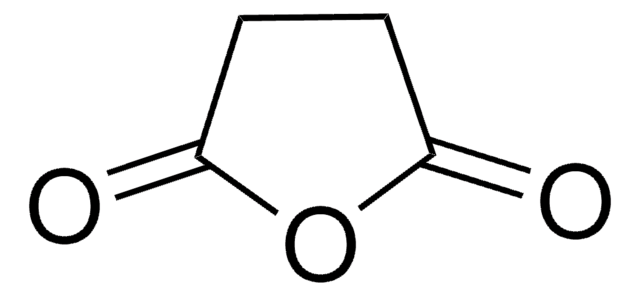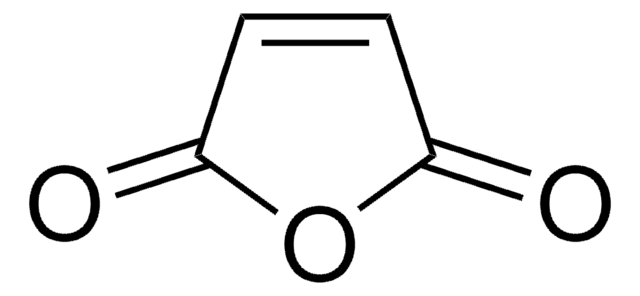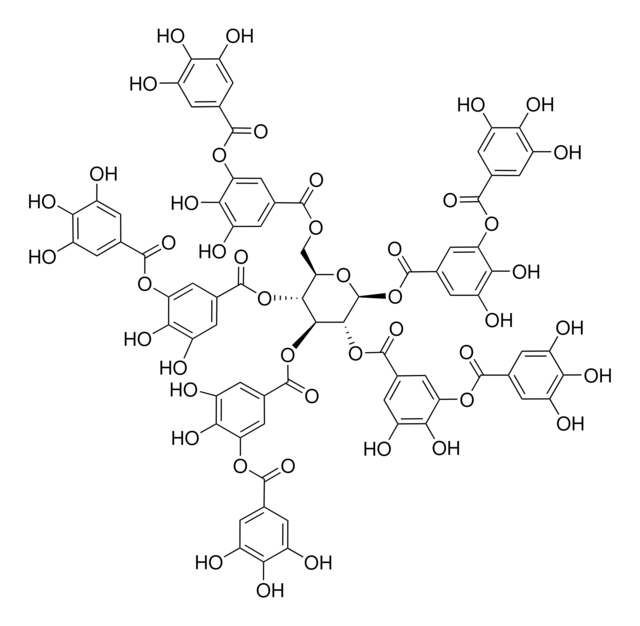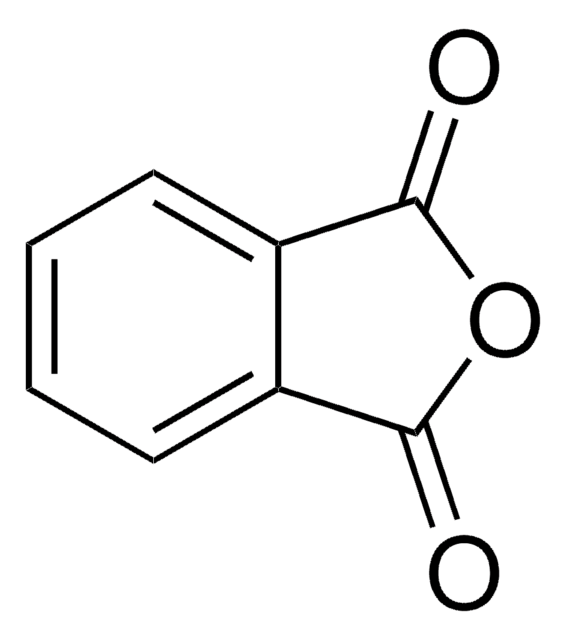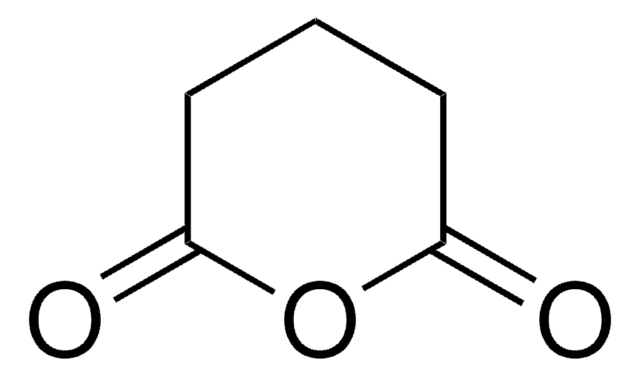8.00683
Succinic anhydride
for synthesis
Sinónimos:
Succinic anhydride
About This Item
Productos recomendados
vapor pressure
1.3 hPa ( 92 °C)
Quality Level
form
crystals
autoignition temp.
480 °C
potency
1510 mg/kg LD50, oral (Rat)
pH
2.7 (10 g/L in H2O)
bp
261 °C/1013 hPa
mp
116-120 °C
transition temp
flash point 157 °C
solubility
62.9 g/L (Hydrolysis)
density
1.23 g/cm3 at 20 °C
bulk density
550‑600 kg/m3
storage temp.
2-30°C
InChI
1S/C4H4O3/c5-3-1-2-4(6)7-3/h1-2H2
InChI key
RINCXYDBBGOEEQ-UHFFFAOYSA-N
Application
- Enhanced antimicrobial fibers: Succinic anhydride is utilized in the conjugation of chitosan with Harakeke and Hemp fibers to produce antimicrobial fibers, which significantly increase their utility in medical and hygiene products (Barker et al., 2024).
- Antitumor diterpenoids: Succinic anhydride is integral to synthesizing new clerodane diterpenoids from Callicarpa pseudorubella, which show potential antitumor proliferative activity, expanding its applications in cancer research (Pan et al., 2024).
- Nanogel delivery systems: It plays a role in developing nanogel delivery systems for cationic peptides, enhancing the delivery of therapeutic agents and showcasing its versatility in pharmaceutical delivery systems (Mørck Nielsen et al., 2024).
Analysis Note
Identity (IR): conforms
Melting range (lower value): ≥ 116 °C
Melting range (upper value): ≤ 120 °C
signalword
Danger
Hazard Classifications
Acute Tox. 4 Oral - Eye Dam. 1 - Resp. Sens. 1 - Skin Corr. 1B - Skin Sens. 1
Storage Class
8A - Combustible, corrosive hazardous materials
wgk_germany
WGK 1
flash_point_f
314.6 °F
flash_point_c
157 °C
Certificados de análisis (COA)
Busque Certificados de análisis (COA) introduciendo el número de lote del producto. Los números de lote se encuentran en la etiqueta del producto después de las palabras «Lot» o «Batch»
¿Ya tiene este producto?
Encuentre la documentación para los productos que ha comprado recientemente en la Biblioteca de documentos.
Nuestro equipo de científicos tiene experiencia en todas las áreas de investigación: Ciencias de la vida, Ciencia de los materiales, Síntesis química, Cromatografía, Analítica y muchas otras.
Póngase en contacto con el Servicio técnico